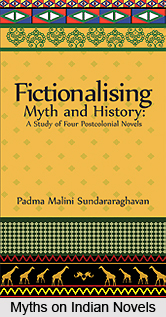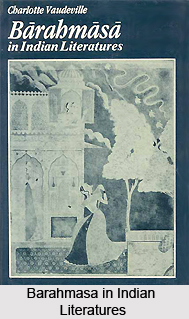 Mythology in Indian context is perhaps the most utilised and most admired for every generation and genre. History bears proof to every fact that Indians from every age, time and place and dynasty have expressed their ardent desire to be enriched and knowledgeable in myths, mythology, legends and folklore. Irrespective of belonging to the contemporary age or being placed in erstwhile era, Indian mythology and its umpteen sections have rested their permanent influence on Indian literature as a whole, which by their own right, can be considered a literary genre itself. Mythology in the Indian context is kind of an all-encompassing and all-inclusive subject, to which everybody wants to be a part of. The traditional, customary and highly esteemed view point of the grandmother-styled art of story-telling has been evolving with time since time immemorial, and this can never be an overstatement. Mythology and their Himalayan twists, turns, thrills, the evil act of a villain-like gorgon and the ultimate triumph of good over evil by the knight in shining armour, together with his rescued kingdom and his beautiful princess, have forever influenced Indian writers, beginning from the Vedic Age. As such, mythological themes in Indian literature are just another common aspect, governing one`s daily life and passion for reading.
Mythology in Indian context is perhaps the most utilised and most admired for every generation and genre. History bears proof to every fact that Indians from every age, time and place and dynasty have expressed their ardent desire to be enriched and knowledgeable in myths, mythology, legends and folklore. Irrespective of belonging to the contemporary age or being placed in erstwhile era, Indian mythology and its umpteen sections have rested their permanent influence on Indian literature as a whole, which by their own right, can be considered a literary genre itself. Mythology in the Indian context is kind of an all-encompassing and all-inclusive subject, to which everybody wants to be a part of. The traditional, customary and highly esteemed view point of the grandmother-styled art of story-telling has been evolving with time since time immemorial, and this can never be an overstatement. Mythology and their Himalayan twists, turns, thrills, the evil act of a villain-like gorgon and the ultimate triumph of good over evil by the knight in shining armour, together with his rescued kingdom and his beautiful princess, have forever influenced Indian writers, beginning from the Vedic Age. As such, mythological themes in Indian literature are just another common aspect, governing one`s daily life and passion for reading.
Mythological themes in Indian literature first bear its most influential and destiny-defying traces in the two epics, Ramayana and Mahabharata. These colossal epics and its umpteen plots, sub-plots and further additional plots make these two stand out from every other mythological series in ancient Indian literature. Indeed, Indian literature is saturated with several types of mythological characters and their portrayal have also been one that that bears relevance very much with the contemporary Indian society. For instance, in Mahabharata, the clash of the titans, Pandavas and Kauravas, or their familial ties and cold-wars, Lord Krishna`s rendition of the Bhagavad Gita to Arjuna, or even, Shakuni`s  infamous and manipulative game of dice and its consequences owing to sheer greed, makes these episodes stand out manifestly in present Indian context of strife or antagonism with each other. Ramayana too elaborates about lust for kingdom and power and a wife`s devotion to her husband, or a brother`s passionate respect for his elder ones, in the formation of Rama, Sita, Lakshmana or the demon Ravana and his ambition have been hugely celebrated in verse and poetic language, making the writers almost legend and myth-like themselves.
infamous and manipulative game of dice and its consequences owing to sheer greed, makes these episodes stand out manifestly in present Indian context of strife or antagonism with each other. Ramayana too elaborates about lust for kingdom and power and a wife`s devotion to her husband, or a brother`s passionate respect for his elder ones, in the formation of Rama, Sita, Lakshmana or the demon Ravana and his ambition have been hugely celebrated in verse and poetic language, making the writers almost legend and myth-like themselves.
Sanskrit literature, from the Vedic Age has time and again, that too incessantly, have poured out mythological characters and their style of leading life in the hands of writers like Kalidasa, Shudraka, Bana, or Bhasa. Leaving these aside, the Vedic Puranas, or the Upanishads are Indian literature depicting mythological themes in every single line and rhythm. The Puranas, with their almost epic-like storyline and the depiction of the various stratum of society residing, just like the side-by-side dwelling of humans, Gods and demons, do still make of the present age wonder about prowess of men during those supposed imaginary era. All the Hindu Gods, like Brahma, Vishnu, Shiva, Rama, Agni, Vayu, Surya, Varuna or Indra had actually come into existence from the Vedic Period, all of which were contributions of Sanskrit literature; such was the language`s vastness that Sanskritic Age is divided into Vedic Sanskrit, Classical Sanskrit and emergence of modern-day Sanskrit language. Men like Kalidasa with his Meghaduta,Kumarasambhava, Vikramorvasiya or Abhijnanasakuntalam, have tried to concurrently place long lost mythical stories in their exceedingly sublime and ecstatic literature. Mythological themes in Indian literature also are manifested in these Vedic literatures when it is stated that such commonplace human characters wholly make a tête-à -tête with the God-like characters, that too, with ease and in household comfort, a notion quite unimaginable in contemporary Indian times.
 Indeed, Hindu myths and folklore during these Vedic and Classical times are so very saturated with supernatural chronicles, that mythological themes in Indian literature seems only a banality when speaking about these ages and the men living in it; literature by ancient writers were perhaps incomplete and could never be envisioned without invoking God, the Almighty, their wrath and conversations and lastly, the demons, their evil-doings and their curse on humanity. Literary praises, extolments or the concept of invoking was such that it is also believed that these medieval writers were blessed enough to have directly encountered the Almighty`s venerated blessings and divinity in person. Hindu literature also abounds in other variations in mythological influences, with weapons and weaponry arresting a considerable position. Each prince or king is described to have been endowed with the Omnipotent`s special benediction to possess that out-of-this-world tool to fight his adversary. For instance, Arjuna from Mahabharata was known to have been blessed by Lord Brahma Himself, to be gifted with Brahma`s peculiar weapon. The demon king of Lanka, Ravana in Ramayana is also believed to have been blessed by Lord Shiva Himself, lending the king with unusual powers. Coming down to Classical Age, a rather later period in Hindu literature, Vaishnava literature, with the influence of Lord Krishna under Chaitanya Mahaprabhu and his followers have retold umpteen tales of chivalry, romance, moments of annoyance and love games within Krishna and his love interest Radha. The four Vedas themselves: Rig Veda, Yajur Veda, Sama Veda and Atharva Veda, are also known to contain umpteen tales of heroism, bravery, bloodshed, invasions and valorous deeds, that surely only are possible in mythical books, lending additional finery to mythological themes in Indian literature.
Indeed, Hindu myths and folklore during these Vedic and Classical times are so very saturated with supernatural chronicles, that mythological themes in Indian literature seems only a banality when speaking about these ages and the men living in it; literature by ancient writers were perhaps incomplete and could never be envisioned without invoking God, the Almighty, their wrath and conversations and lastly, the demons, their evil-doings and their curse on humanity. Literary praises, extolments or the concept of invoking was such that it is also believed that these medieval writers were blessed enough to have directly encountered the Almighty`s venerated blessings and divinity in person. Hindu literature also abounds in other variations in mythological influences, with weapons and weaponry arresting a considerable position. Each prince or king is described to have been endowed with the Omnipotent`s special benediction to possess that out-of-this-world tool to fight his adversary. For instance, Arjuna from Mahabharata was known to have been blessed by Lord Brahma Himself, to be gifted with Brahma`s peculiar weapon. The demon king of Lanka, Ravana in Ramayana is also believed to have been blessed by Lord Shiva Himself, lending the king with unusual powers. Coming down to Classical Age, a rather later period in Hindu literature, Vaishnava literature, with the influence of Lord Krishna under Chaitanya Mahaprabhu and his followers have retold umpteen tales of chivalry, romance, moments of annoyance and love games within Krishna and his love interest Radha. The four Vedas themselves: Rig Veda, Yajur Veda, Sama Veda and Atharva Veda, are also known to contain umpteen tales of heroism, bravery, bloodshed, invasions and valorous deeds, that surely only are possible in mythical books, lending additional finery to mythological themes in Indian literature.
Besides Hindu literature, mythological themes in Indian literature is also apparent and totally mirrored in Buddhist literature, with the children-friendly Jataka stories and its magical universe. In fact, the solid base as if personified and founder of the sublime religion Buddhism itself, Gautama Buddha, is full of mythical legends. Beginning from Buddha`s birth and ending in his Mahaparinirvana (death of Lord Buddha), mythology has never been far away from India and Indians. Indeed, within Buddhism, Jainism or Islamic religion, minor to major traces of mythological literature have been found in each of the advancing literary sections. The theme of interest however in contemporary times lies with the modern Indian literature and its utilisation of the mythological theme in an extensive sense. This task has too been smoothly accomplished, owing to the ingrained influence of myth and legend to every Indian born in the country or overseas. Every one likes to come back to the Indian context and backdrop when reminiscing their regional literature. Mythological theme in Indian English literature or regional literature has time and again mesmerised and captivated the section of readers in general. The gigantic proportions, the setting, the concept of families residing in a joint method, or the magnum opus work of art, make these contemporary Indian writers stand out in an entirely different genre altogether. As in Arundhati Roy, Amitav Ghosh, Salman Rushdie, or Shashi Tharoor with his The Great Indian Novel, have time and again and recurrently regained stronghold with mythology in their novels. Symbolism and implicit references to mythology is one guiding factor that presently counts in contemporary Indian literature, known to be quite a hit amongst all ages of readers.













